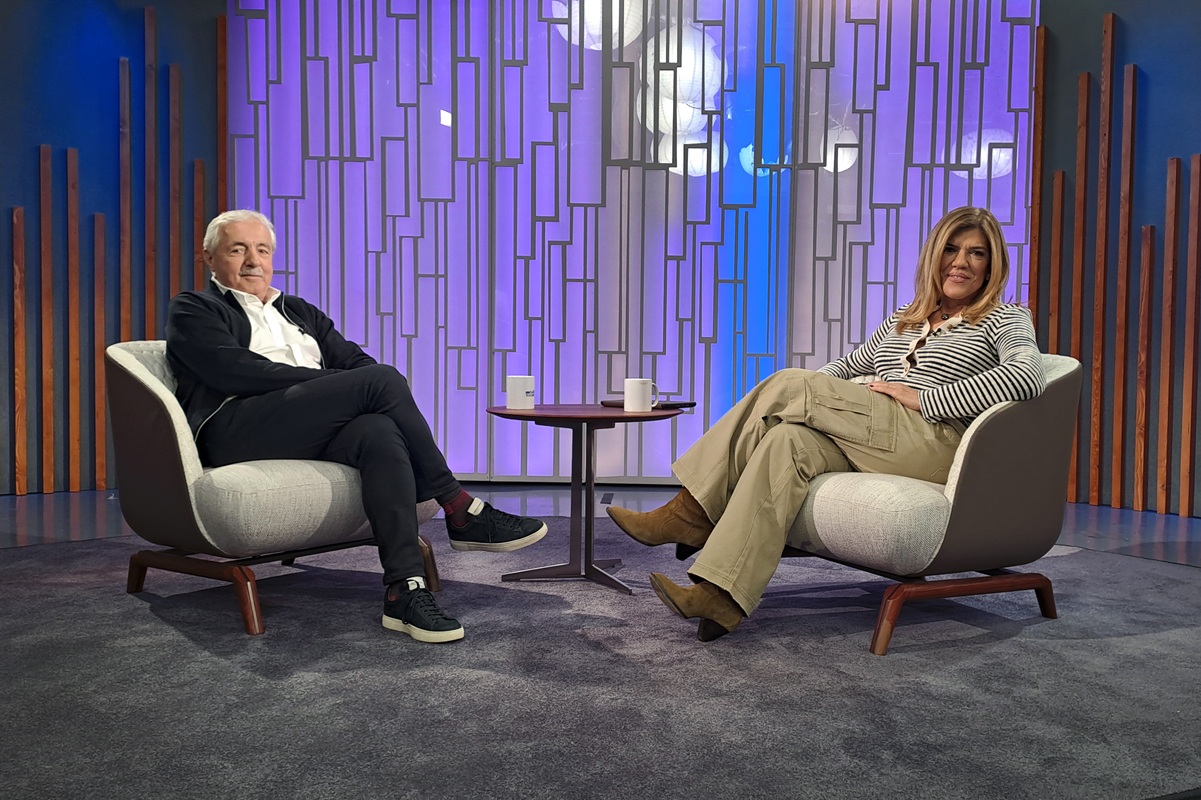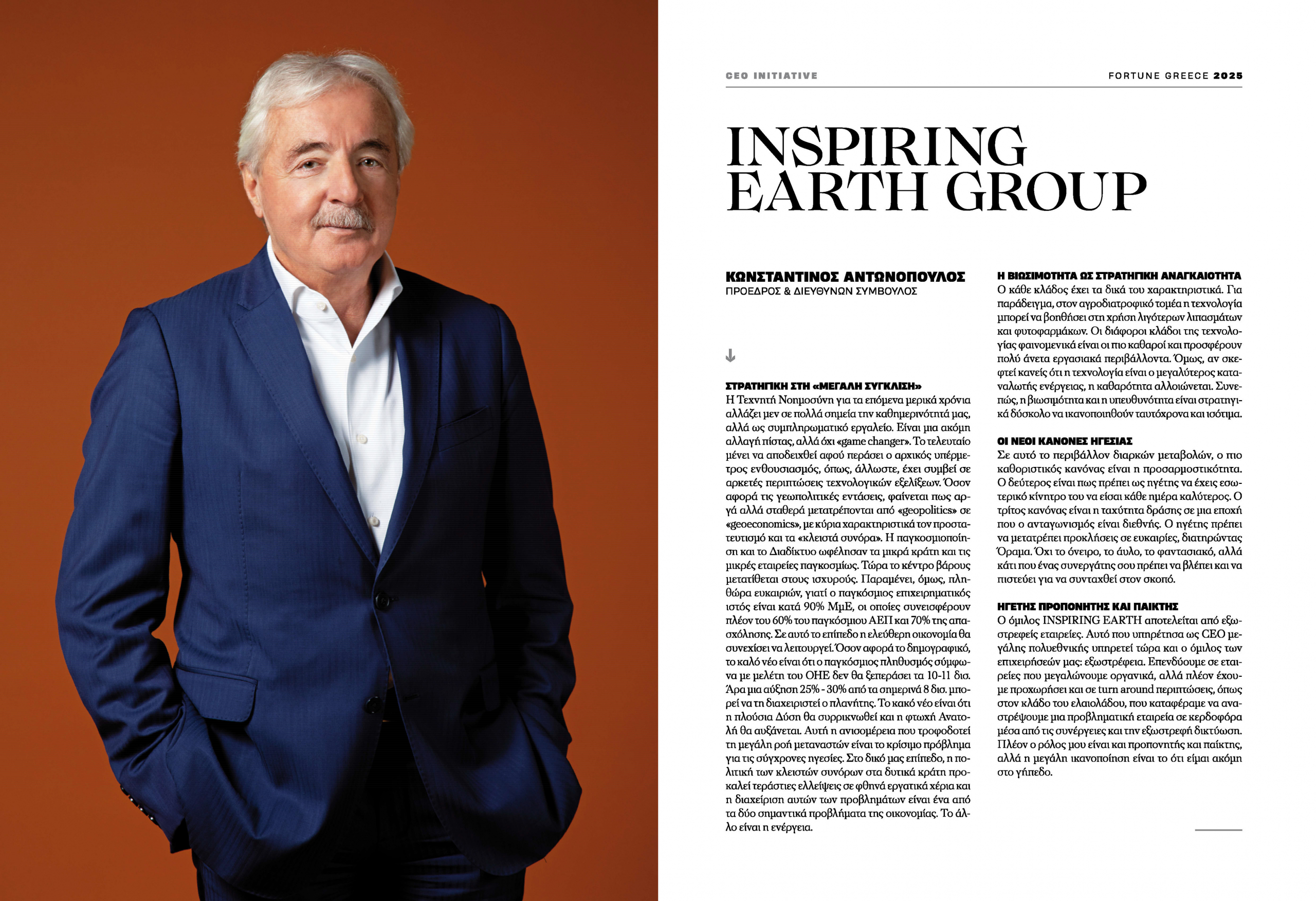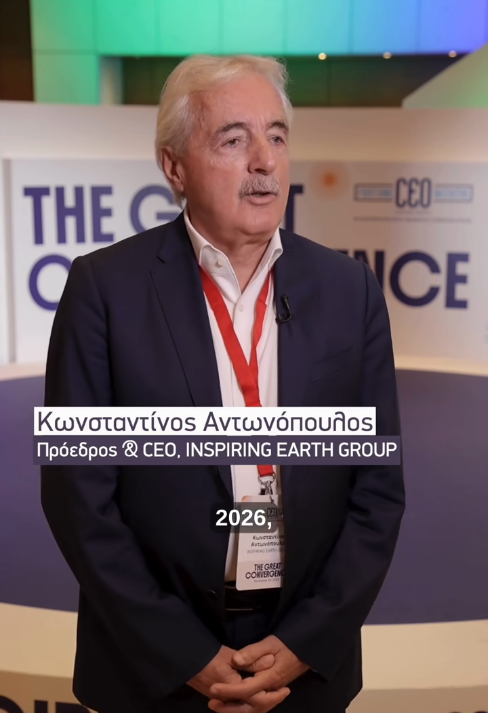
Constantinos Antonopoulos, President and CEO of “Inspiring Earth” was the featured guest on the show “Those Who Dared”
The President and CEO of “Inspiring Earth” and former CEO of “Intralot”—one of the most extrovert Greek multinational companies—shared his fascinating journey with Anastasia Paretzoglou, from his time at the Polytechnic University to the Skaramagas shipyards, and into the world of major innovative investments.
With a direct, experiential, and sincere tone, Constantinos Antonopoulos spoke about the defining crossroads of his life, the role technological innovation played in shaping his entrepreneurial thinking, and his landmark collaboration with Socrates Kokkalis, which he described as pivotal in his transition from manager to entrepreneur. As he admitted, it was Kokkalis who gave him the opportunity to take on international initiatives, offering him a deeper business perspective.
Discussing the geoeconomic challenges of our time and their impact on entrepreneurship, he emphasized the need for constant adaptation:
“Adaptability is the most important asset for entrepreneurs,” he stressed, explaining that each era presents different circumstances, and success depends on the ability to change and align with the new environment.
Antonopoulos didn’t hesitate to reinforce what he had stated at the “CEO Initiative Forum 2024”. Once again, he likened the Greek economy to a troubled company: “Greece is a ‘company’ that loses money every year, and it will continue to,” he noted, calling for a shift in focus toward a productive restart.
At the heart of economic restructuring, according to him, are small and medium-sized enterprises (SMEs), which he believes need support from flexible investment schemes that can drive mid-scale growth.
“SMEs need SME-sized capital,” he stated.
Reflecting on his early steps, he described how, as a young engineer at the Skaramagas shipyards, he earned the trust of the technicians through persistence and study. After his time in the industry, Antonopoulos moved on to the Ministry of National Economy—a role that, as he said, completely changed his perspective. There, for the first time, he saw businesses not from the inside, but “from above”—through the lens of the market as a whole, with its sectors, scales, and systems.
“I no longer saw just a ship. I saw industries, the economy. I saw things from above,” he remarked.
A milestone in his career was his collaboration with Socrates Kokkalis, which he remembers with respect and gratitude: “Until then, I was a very good manager. He’s the one who truly gave me an entrepreneurial profile,” he admitted, highlighting how Kokkalis’s business acumen was the first to spot opportunities in state lotteries.
After the failure of his first venture in Moscow—which taught him that technology alone is not enough without understanding the market’s culture and needs—Antonopoulos returned to the Greek market with a renewed strategy and achieved one of the greatest successes of his career with Intralot: the scratch lottery. In 1993–1994, Intralot won the contract to implement it, and through an innovative blend of technology and top-tier marketing, turned the product into a phenomenon. “We made the best scratch card in the world,” he said, describing a period when “scratch-mania” swept through the Greek market and generated significant revenue—not only for the company but for the state as well.
On a more personal note, his wife, Louiza Paschou, also appeared in the studio to share her perspective. Their shared journey spans more than four decades:
“What was very important is that we had different responsibilities,” she said with humor and realism, describing a balance built on mutual respect and autonomy.
The conversation concluded with a message to the younger generation, which became the central motto of the episode: “People need to invest their time in what they’re talented at,” emphasized Constantinos Antonopoulos, encouraging young people to find what sets them apart and to cultivate it with persistence.
On a more existential note, he highlighted the importance of family for a leader: “An entrepreneur is someone who has no shoulder to cry on. Family is that shoulder.”
Watch the full interview here



